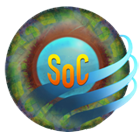Commoning Anthropology
So this was going to be a forum, but I have decided a blog is better as I hope for it to act in part as a diary of events.
I study Social Anthropology and have decided that I would like to do some fieldwork for my dissertation next academic year.
I am also very interested in the Commons and am gradually using it as a lens to see a lot very differently. It starts off as seeming such a basic common sense, but as time has passed it has grown within me and gained a lot more depth, but depth of an uncomplex kind that is accessible. Especially the the idea, act and perspective of Commoning.
I think a very simple definition of Anthropology and the Commons are deserved here for those not familiar with one or the other:
the Commons: It embraces all the creations of nature and society that we inherit jointly and freely, and hold in trust for future generations. http://www.commonslearningalliance.org/content/understanding-commons#what_commons
Social Anthropology: http://www.kent.ac.uk/sac/socanth/index.html AND the last sentence here: http://www.socialsciences.manchester.ac.uk/disciplines/socialanthropology/undergraduate/whatis/
So, I did some thinking with my friends and we have being working on the concept that we wish to be Direct Action Anthropolgists if you will and that perhaps the Commons can play a part in this. Perhaps a better way to put this would be to say that they act as an illuminatory framework, just as they do for resources and such like. Because the Commons isnt just the "stuff" but this way of looking at things - an attitude almost.
I sketched this diagram to explain what I am thinking as it is not quite obvious without all the facts and a model can usually help:
So the red parts are essentially the link we wish to make and test their validity.
If I have not made this clear, I would ask the reader to please help me do so.
What this diagram is trying to display is that perhaps Anthropology in one of its fundamental aspects is an effort at seeing Culture as an everchanging Commons - Anthropology is the commoning of cultures?
Consequently to this we are trying to see what is the best way to make use of a fieldtrip in this context.
Because there is ample space to explore thsi topic as an essay, through academic and such other knwoledge resources without using personal experiential fieldwork.
So far we are working on the idea of spending some time with a community/culture where common resources are not seen as personal possessions and unedrstanding how one might go about this and perhaps getting a feel for seeing the world through a less possessive lens.
I woudl very much welcome suggestions for fieldwork, or communities or people or places to visit (we have a few in mind) and perhaps using some collective intelligence to delve into this topic!


Comments
Hi Avi,
Hi Avi
I like your thinking on this. Some thoughts spring to mind from what you say: we must preserve and cultivate:
http://integrallife.com/community-content/integral-theory-another-expres...
It is premium content unfortunately (£10 per month) but I listened to it when I was a member of Integral Life and was very insightful.
Anyway interested to learn more from you Avi you brought out these ideas from me with your blog post, so thank you
Mark
Dunbar's number
a bit to help with organizing some aspects of commons holdings
Dunbar's number
http://www.guardian.co.uk/science/2011/apr/25/few-people-dunbars-number
selection criteria, driving questions, preferred relatonship
hello Avi,
> So far we are working on the idea of spending some time with a community/culture where common resources are not seen as personal possessions and unedrstanding how one might go about this and perhaps getting a feel for seeing the world through a less possessive lens.
Congratulation to you and your friends for blazing the trail of Commons Anthropology! Science has always been a multi-generational commons of non-diminishing resources, where resarchers coud build on the work of current and past generations of their peers, which reminds me this:
As I'm sure you know, Lewis Hyde used anthropology, economics, psychology, art and fairy tales to examine the role gifts in his epic book, The Gift. He wrote it two decades earlier than the emergence of the first Web-enabled communities. By the end of the new millennium's first decad, millions of netizens became active in various open soource and peer-to-peer, knowledge-sharing communities gathering around common respources, where they can get "If a feel for seeing the world through a less possessive lens." (I see that as first step on the long journey to a commons-based society.)
If you don't limit the destination choice of your fieldtrip to "natural resource" commons, if you include the cultural and intellectual commons as well, then you have at leats 2 or 3 times as many options to choose from. It's also easier on your carbon footprint... :-)
Your answers to those questions could advance not only your project but, also the collective intelligence that your blogpost can call into being.
Thank you for the opportunity to be part of it!
george
p.s.: You probably remember that when we worked on the élan map, we collected info on a good number of projects and communities on the edge. Well, once clarified your thoughts about the questions above, you may want to sample that resource for an initial collection of candidates for your fieldtrip.